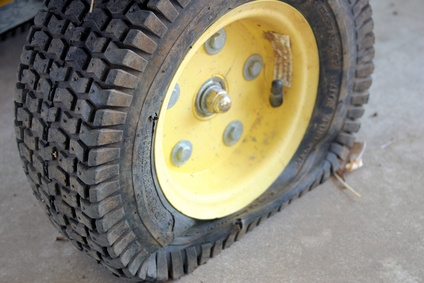
Slippery roads and icy precipitation aren't the only winter driving danger. The changes in your tire pressure can significantly affect the safety and efficiency of your vehicle.
All gases contract and become denser during colder temperatures, and the air in your tires is no different. In fact, for every 10 degree Fahrenheit drop in temperature, the pressure in your tires drops by 1 lb. per square inch. In addition, tires lose 1 lb. naturally every month.
Proper air pressure in your tires is important to maintaining optimum traction, good control of the vehicle and proper wear on your tires. Low tire pressure isn't good for your budget either. Under-inflated tires lower your fuel mileage and cause your tires to wear out faster.
Prevent these problems by checking your tire pressure at least one a month, especially while the temperature is falling. Invest in a dependable tire pressure gauge and check the pressure in all your tires--including the spare--before you drive the car. Tires heat up as they make contact with the road, so you may get inaccurate readings if you've recently driven the vehicle.